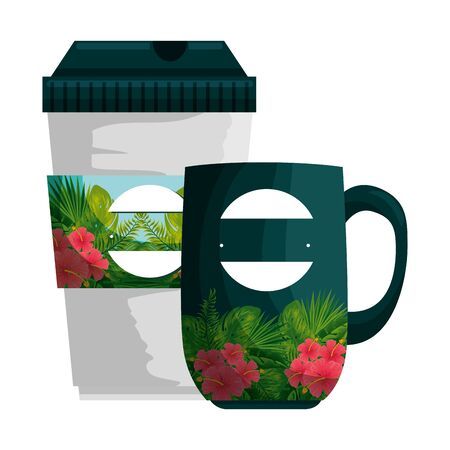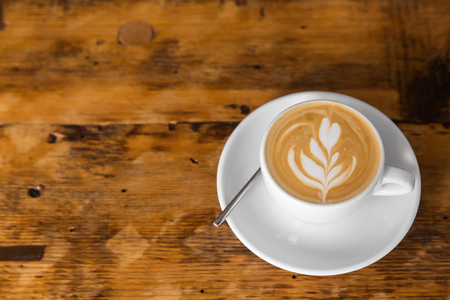1. Understanding Fasting: What Counts as Breaking a Fast?
Fasting isn’t just a health trend—it’s become part of daily life for many Americans looking to boost their energy, improve focus, or manage their weight. But before you pour yourself that morning coffee, let’s break down what fasting really means and how it works.
What Is Fasting?
At its core, fasting is simply taking a break from eating (and sometimes drinking) for a certain amount of time. This gives your body a chance to rest from constant digestion and can trigger some interesting changes in how your body uses energy. While there are many reasons people fast—religious, spiritual, or health—the most popular forms in America today are health-related.
Popular Types of Fasting in America
| Type | Description | Typical Eating Window |
|---|---|---|
| Intermittent Fasting (IF) | Cycling between periods of eating and fasting. Most common is 16:8 (16 hours fasting, 8 hours eating). | 12 pm – 8 pm (example) |
| Alternate-Day Fasting | Alternating between days of normal eating and days of very low calorie intake or no food. | Every other day |
| Time-Restricted Eating | Eating all meals within a set number of hours each day. | 8 am – 4 pm (example) |
| 24-Hour Fast | No food for a full day, typically once or twice a week. | Once/twice weekly |
What Breaks a Fast?
The key question with any kind of fast is: what actually counts as “breaking” it? In simple terms, anything that causes your body to start digesting calories will technically break your fast. But not all experts agree on every detail, especially when it comes to drinks like coffee.
- Strict Fasting: Only water is allowed—no calories at all.
- Modified Fasting: Some allow black coffee, tea, or zero-calorie drinks during the fasting window.
- Caloric Intake: Consuming any beverage or food with significant calories (like cream or sugar in coffee) will almost always break your fast.
The Bottom Line on Fasting Rules
The rules can vary depending on your goal—whether it’s weight loss, metabolic health, or religious observance. For most Americans practicing intermittent fasting for health, zero-calorie drinks like black coffee might be okay. Next up, we’ll dive deeper into whether that cup of joe fits into your fasting plan.
2. Coffee and Fasting: Can You Enjoy Your Morning Cup?
For many of us, the day doesn’t truly begin until we’ve had that first sip of coffee. But if you’re fasting, you might wonder: does that morning cup break your fast? Let’s explore how black coffee fits into common fasting guidelines and what it really does to your body during a fast.
Does Black Coffee Break a Fast?
Good news for coffee lovers—black coffee is generally considered “fasting-friendly.” The main reason is that plain black coffee has almost no calories, sugar, or fat. Most popular types of intermittent fasting (like 16:8 or 5:2) allow beverages with fewer than 5 calories per serving, and black coffee easily fits that rule.
| Beverage | Calories (per 8 oz) | Fasting-Friendly? |
|---|---|---|
| Black Coffee | <5 | Yes |
| Coffee with Sugar/Milk | 20-100+ | No |
| Herbal Tea (unsweetened) | 0-2 | Yes |
| Soda/Juice | 80-120+ | No |
How Coffee Affects Your Body During Fasting
Coffee isn’t just safe for most fasting routines—it might actually help! Here’s what happens physiologically when you drink black coffee while fasting:
- No Insulin Spike: Black coffee doesn’t contain sugar or carbs, so it won’t cause your insulin levels to rise. This helps keep your body in the “fasted” state.
- May Boost Fat Burning: Caffeine can slightly increase your metabolism and encourage your body to use fat as energy, which can enhance some benefits of fasting.
- Appetite Control: Many people find that coffee helps curb hunger pangs, making it easier to stick with their fasting schedule.
- Mental Focus: The caffeine in coffee can give you a gentle energy boost and improve focus, which is helpful when you’re running on an empty stomach.
What About Add-Ins?
If you love your coffee sweetened or creamy, remember: adding sugar, milk, or flavored syrups will raise the calorie count and may break your fast. If you want to stay within fasting guidelines, stick to black coffee or add calorie-free options like cinnamon or a splash of unsweetened almond milk (less than 1 tablespoon).

3. Health Benefits and Potential Drawbacks
When it comes to drinking coffee while fasting, the conversation often revolves around its impact on your body. Let’s break down what science says about the pros and cons, especially how coffee affects metabolism, energy levels, and hunger during a fast.
How Coffee Can Support Your Fast
| Benefit | How It Works |
|---|---|
| Boosts Metabolism | Caffeine can increase your metabolic rate, helping you burn more calories even at rest. |
| Improves Focus and Energy | A cup of black coffee may give you a mental lift and help you feel less sluggish while fasting. |
| Reduces Appetite | Coffee may naturally suppress your appetite, making it easier to stick with your fasting window. |
The Science Behind the Perks
Caffeine is the main reason coffee can be helpful during a fast. Research shows it stimulates the central nervous system, which not only perks up your mind but also signals your body to release stored fat for energy. That’s why many people feel more alert and less hungry after a cup of black coffee in the morning.
Potential Drawbacks of Drinking Coffee While Fasting
| Drawback | What You Might Notice |
|---|---|
| Stomach Discomfort | Coffee is acidic and can irritate an empty stomach, sometimes leading to heartburn or nausea. |
| Anxiety or Jitters | Sensitive individuals might feel shaky or anxious from caffeine, especially without food. |
| Poor Sleep Quality | If you drink coffee late in your fasting period, it could disrupt your sleep schedule. |
Important Considerations for Your Fast
The effects of coffee can vary depending on how your body reacts to caffeine. Some people find black coffee makes their fasting experience smoother, while others notice digestive upset or increased anxiety. It’s also essential to avoid adding sugar, cream, or other high-calorie extras if you want to stay in a true fasted state—these add-ins can break your fast and reduce the benefits you’re aiming for.
4. Best Practices: How to Drink Coffee While Fasting
If you love coffee and are trying intermittent fasting, you might wonder how to enjoy your cup of joe without breaking your fast. Here’s a simple, practical guide tailored for Americans looking to make the most of their fasting window—without giving up their favorite morning ritual.
Types of Coffee to Choose While Fasting
Not all coffees are created equal when you’re fasting. Some options are better suited to keep your body in a fasted state. Here’s a quick comparison:
| Coffee Type | Fasting Friendly? | Notes |
|---|---|---|
| Black Coffee | Yes | 0 calories, no sugar or cream—best choice during fasting. |
| Espresso | Yes | Strong and calorie-free if enjoyed plain. |
| Iced Coffee (Unsweetened) | Yes | Refreshing option, just skip syrups and milk. |
| Coffee with Milk/Creamer | No* | *Small splash may be okay for some, but can break strict fasts. |
| Flavored or Sweetened Coffee Drinks | No | Avoid added sugars, syrups, and heavy creamers—they’ll spike insulin and end your fast. |
Best Timing for Your Coffee During Fasting Windows
The timing of your coffee can affect how you feel during your fast. Many Americans find these routines helpful:
- Morning Boost: Enjoy black coffee soon after waking up to help fight morning grogginess and support alertness as you start your day.
- Mid-Morning Slump: If hunger hits before your eating window opens, sipping coffee can help curb appetite and keep you on track.
- Avoid Late Afternoon: Drinking coffee too late can disrupt sleep—try to have your last cup by early afternoon (think 2-3 p.m.).
Common Mistakes to Avoid When Drinking Coffee While Fasting
- Adding Sugar or Creamer: Even small amounts can break your fast and reduce the health benefits you’re aiming for.
- Sipping Specialty Drinks: Lattes, frappuccinos, or flavored coffees from popular chains usually contain calories and sugar—best saved for your eating window.
- Drinking Too Much: Overdoing caffeine can lead to jitters, dehydration, or an upset stomach. Stick to moderate amounts—usually no more than 3-4 cups per day.
- Ditching Water: Coffee is not a substitute for water. Remember to stay hydrated throughout your fasting hours by drinking plenty of water along with your coffee.
Your Fasting-Friendly Coffee Checklist
- Select plain black coffee or espresso without add-ins.
- Avoid sweeteners, flavored syrups, and dairy-based creamers during fasting periods.
- Pace yourself with caffeine intake—moderation is key.
- Time your coffee for mornings or early afternoons only.
- Keep hydrating! Pair every cup of coffee with a glass of water.
5. Popular Fasting-Friendly Coffee Additions (And What to Skip)
When youre fasting but still want to enjoy your morning cup of coffee, its natural to wonder what you can safely add in without breaking your fast. In the US, coffee is rarely just black—think of all those creamers, syrups, and sweeteners at your local Starbucks or in your pantry! Heres a simple breakdown to help you navigate what’s fasting-friendly and what’s best avoided.
Fasting-Friendly Additions
If you want to keep your fast intact, these common additions are generally safe for most types of intermittent fasting:
| Addition | Popular US Brands/Examples | Fasting-Friendly? | Notes |
|---|---|---|---|
| Black Coffee | Starbucks Pike Place, Dunkin’ Original Blend | Yes | Zero calories and zero sugar; completely safe! |
| Unsweetened Almond Milk | Silk, Califia Farms | In Small Amounts | Use 1-2 tablespoons (under 10 calories) to stay safe. |
| Sugar Substitutes | Stevia (Truvia), Monk Fruit (Lakanto) | Yes | No calories or carbs—these won’t break a fast for most people. |
| Cinnamon | McCormick Ground Cinnamon | Yes | Adds flavor without calories or sugar. |
| MCT Oil/Coconut Oil (small amount) | Bulletproof, Nutiva MCT Oil | If on Keto Fast* | Tiny amounts (<1 tsp) may be ok for some keto-style fasts but not strict fasting. |
| Sparkling Water “Splash” (unflavored) | Perrier, LaCroix (unflavored) | Yes | If you like a fizzy twist, just make sure it’s unflavored and unsweetened. |
Additions That Might Break Your Fast
Certain popular coffee additions can spike insulin or add enough calories to disrupt your fasting window. Here’s what to watch out for:
| Addition | Popular US Brands/Examples | Might Break Fast? | Why? |
|---|---|---|---|
| Creamers (Dairy & Non-Dairy) | Coffee mate, International Delight, Silk Vanilla Almond Creamer | Yes | Most have added sugar and fat; even “fat-free” versions contain calories. |
| Sugar / Honey / Agave Syrup | C&H Sugar, Nature Nate’s Honey, Wholesome Agave Syrup | Yes | Naturally high in sugar and calories—will break your fast quickly. |
| Syrups & Flavored Shots | Torani Vanilla Syrup, Starbucks Classic Syrup | Yes | Packed with sugar and calories. |
| Oat Milk / Soy Milk / Regular Milk | Oatly, Silk Soymilk, Horizon Organic Milk | Mostly Yes* | A splash might be ok, but these often have more carbs/calories than almond milk. |
| Coffee Blends with Protein Powder or Collagen | Vital Proteins Collagen Peptides, Orgain Protein Powder | Yes | Adds protein/calories—great for post-fast but not during fasting hours. |
| Sugar Alcohols (some types) | Erythritol (Swerve), Xylitol | Caution* | Erythritol is usually fine; xylitol may trigger an insulin response for some people. |
A Few Quick Tips for American Coffee Lovers:
- If you’re grabbing coffee at Starbucks or Dunkin’, ask for it black or with a splash of unsweetened almond milk. Avoid the flavored syrups unless you know they’re sugar-free!
- If you need sweetness, stevia or monk fruit are your best bets—they’re easy to find in most grocery stores and don’t add calories.
- If you’re following a stricter fast (like water-only), stick with plain black coffee and skip all additives—even calorie-free ones—to play it safe.
- Keto-friendly additions like MCT oil are only “fasting-friendly” if you’re doing a fat fast or keto intermittent fasting; otherwise, any oil technically breaks a strict fast.
- A good rule: anything under about 10 calories per cup usually won’t interfere much with most intermittent fasting goals.
The Bottom Line on Coffee Additions While Fasting:
Your safest bet is always black coffee. If you need a little something extra, stick with minimal calorie options like stevia or a splash of unsweetened almond milk. When in doubt, check the label—and remember that every body responds differently!
6. Listening to Your Body: Personalizing Your Fasting and Coffee Experience
Everyone’s fasting journey is unique, and how you respond to coffee during a fast can be different from others. Tuning in to your body’s signals is one of the most important things you can do for long-term success with both fasting and enjoying your daily cup of joe.
Why Pay Attention to Your Body?
Your energy levels, mood, stomach comfort, and even sleep quality can all shift depending on when and how much coffee you drink during a fast. For example, some people find that black coffee helps them feel energized and focused, while others might experience jitters or an upset stomach.
Common Body Signals to Watch For
| Signal | What It Might Mean | Possible Adjustments |
|---|---|---|
| Nervousness or Jitters | You may be sensitive to caffeine, especially on an empty stomach. | Try reducing the amount or choosing decaf coffee. |
| Stomach Discomfort | Coffee can increase stomach acid for some people when fasting. | Add a splash of almond milk (if it fits your fasting plan) or switch to cold brew for lower acidity. |
| Improved Focus & Energy | Coffee is working well with your fasting routine! | Keep doing what works for you, but stay mindful of how much you consume. |
| Poor Sleep at Night | Caffeine might be lingering in your system too late in the day. | Enjoy coffee earlier or limit intake after noon. |
Tips for Personalizing Your Routine
- Start Slow: If you’re new to fasting with coffee, begin with a small cup and see how you feel.
- Journal Your Experience: Keep notes on your energy, hunger, and mood before and after drinking coffee during a fast.
- Experiment Mindfully: Try different types of coffee (like cold brew or light roast) and timing (morning vs. midday) to see what suits you best.
- Stay Hydrated: Remember, water is just as important as coffee during fasting periods!
Your Fasting Journey is Personal
No single approach works for everyone. By staying curious and observant about how your body responds, you’ll discover the sweet spot where fasting and coffee bring out the best in each other—for your health and happiness.


